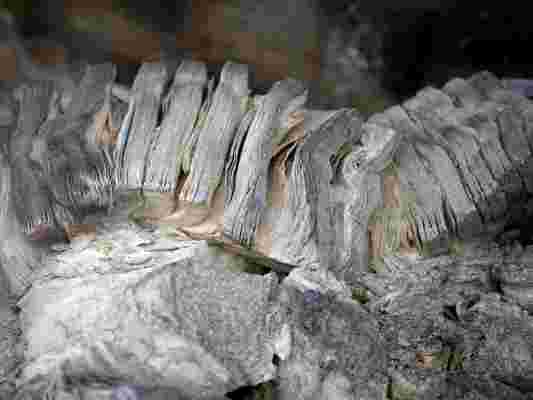For centuries, Mosul, Iraq was known as a cosmopolitan center, a place where citizens of different faiths co-mingled, and a forum for a vibrant literary and intellectual discourse. Al-Faiha—or, paradise—, as it was also called, the city is home to one of the region’s largest and most reputable universities, steeped in a liberal arts tradition. But, for the last few years, Mosul, an ISIS stronghold, has become known principally for the terrorist group's atrocities and the battle that has raged there to root them out. Throughout that recent history, one brave resident, known, anonymously as ‘Mosul Eye,’ has been documenting life in the city on a blog and social media, providing a valuable on-the-ground account of life amidst the war.
On the heels of the Iraqi prime minister’s declaration of victory this week, AD , in an exclusive conversation, spoke with Mosul Eye about the experience of the last few years, and about the prospect of rebuilding the city.
Through what has been a grizzly battle for the city, the destruction—both from ISIS and airstrikes—has been inestimable, including the loss of historic landmarks and vast stretches of the city’s landscape. As Mosul Eye accounts, “more than 11,000 homes have been destroyed, more than 1,000,000 persons have been displaced, and more than 200,000 people will never be able to return to the city.”
“I’m so sad to see my city destroyed,” he says. “For so long, everyone has been focused on defeating ISIS, so now there is this big question: who rules the city, and what is the plan?”
Of the many now-rubbled structures throughout Mosul, one that particularly stings—for Mosul Eye and for people across the region—is the University of Mosul’s library, which had long been home not only to some of Iraq’s most prized book collections, but also to a bustling academic life. The building itself was badly damaged, and, in a craven twist-of-the-knife, ISIS militants systematically burned much of its collection.

The charred remains of books from the university library.
As Mosul residents begin to consider life-after-ISIS, Mosul Eye has set out to rebuild the university library’s collection, recognizing the value of education. “This is my mission now,” he says, stoically. Recalling his years of documenting life under ISIS rule, he explains, “for so long I have been focusing on death and destruction, but now I will focus on this project—to rebuild the library, and to reconnect Mosul to its neighbors and to the international community.”
“Mosul is something in need of help,” he urges. To that end, he is setting out to rebuild the library’s collection with contributions from around the world. “We need scientific books, medical books, books related to the humanities, books about different cultures, books about linguistics,” he says. “We have to modernize the city.”
Despite the years of carnage, Mosul Eye is hopeful his city will again be a center of cosmopolitanism. “People only know Mosul from news about the battles,” he said. But he knows there can be another way. “In Mosul, you can find churches next to mosques,” he remembers. “In the past, there are all these people living together with a shared identity—a Mosul identity—not divided between religions.”
“Mosul is something beautiful—like the old cities in Europe, and like those cities, I have dreams of Mosul becoming a city where people from Europe and the U.S. would come for vacation.”
